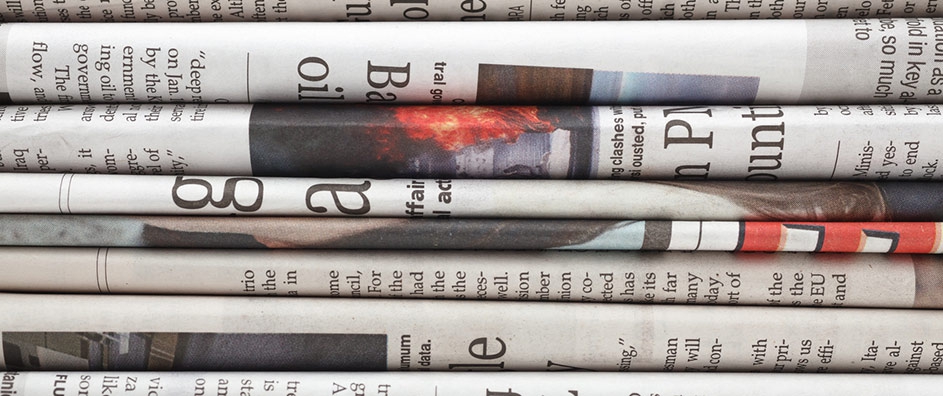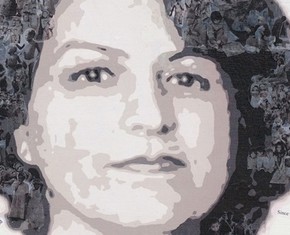The views expressed in our content reflect individual perspectives and do not represent the authoritative views of the Baha'i Faith.
The press gets a lot of bad press these days, with charges of bias, fake news and corporate influence. You name it, the media gets blamed left and right.
So what are the duties of the news media, according to the Baha’i teachings?
1. Reporting Accurately
First, the duty of the press is to report accurately. This professional standard, adopted by journalists worldwide, doubles as a sacred value, as Baha’u’llah states:
In this Day the secrets of the earth are laid bare before the eyes of men. The pages of swiftly-appearing newspapers are indeed the mirror of the world. They reflect the deeds and the pursuits of divers peoples and kindreds. They both reflect them and make them known. They are a mirror endowed with hearing, sight and speech. This is an amazing and potent phenomenon. However, it behoveth the writers thereof to be purged from the promptings of evil passions and desires and to be attired with the raiment of justice and equity. They should enquire into situations as much as possible and ascertain the facts, then set them down in writing. — Baha’u’llah, Tablets of Baha’u’llah, pp. 39–40.
2. Reporting Justly
The Baha’i teachings say another obligation of the press involves promoting justice by raising public awareness of current injustices. In a letter to the London Times in 1891, Baha’u’llah wrote about the persecution of Baha’is in Persia (now Iran):
O ’Times’, O thou endowed with the power of utterance! O dawning place of news! Spend an hour with the oppressed of Iran, and witness how the exemplars of justice and equity are sorely tried beneath the sword of tyrants. Infants have been deprived of milk, and women and children have fallen captive to the lawless. The blood of God’s lovers hath dyed the earth red, and the sighs of His near ones have set the universe ablaze. …
O newspapers published throughout the cities and countries of the world! Have ye heard the groan of the downtrodden, and have their cries of anguish reached your ears? Or have these remained concealed? It is hoped that ye will investigate the truth of what hath occurred and vindicate it . . . – Baha’u’llah, Tablet to The Times of London, quoted in The Revelation of Baha’u’llah by Adib Taherzadeh, Volume 4, pp. 348–350.
When reading the passage above, simply substitute any situation of oppression for the specific circumstances of persecution Baha’u’llah asks the London Times to draw to its readers’ attention. Baha’is believe that the principle of justice, on the part of the media, is sacred.
Today, we’ve all seen extensive reporting on the ongoing civil war in Syria, now entering its seventh year. What difference, if any, has that made? Besides calling attention to the ongoing injustices, possible war crimes (targeting of schools, hospitals, mosques, marketplaces, resulting in the deaths of many civilians, including children, women and the elderly), what, if anything, can the press do to promote a solution? There is no easy answer—but one of the animating purposes of the press, according to Baha’i teachings, is the sacred principle of promoting unity:
3. Reporting in Support of Unity
In addition to accuracy and justice, the Baha’i teachings call upon the press to promote peaceful, unified international relations, race relations, and interfaith relations:
A newspaper must in the first instance be the means of creating harmony among the people. This is the prime duty of the proprietors of newspapers, to eradicate misunderstandings between religions and races and nationalities and promote the oneness of mankind. – Abdu’l-Baha, Mahmud’s Diary, p. 270.
This Baha’i teaching on creating harmony may surprise a few journalists. Some may object, saying that promoting unity isn’t their job—that the media has a duty to report the news, and that’s it. But today’s media has no problem with doing the exact opposite, by focusing on disunity and conflict, thereby excluding coverage of more positive developments. Is that fair?
Consider the widespread and sometimes sensationalistic media coverage of crime, for example. That coverage can instill a pervasive sense of insecurity in the populace, despite the fact that statistics show the overall crime rate has dropped considerably in many if not most places. Multiple studies have revealed that blaring, sensational and constant media coverage of crime further polarizes the racial divide, increases fear—and actually leads to more crime.
Imagine this: suppose that the media gave equal time to publicizing stories of positive community news, showcasing ideal international, interracial, and interfaith relations, as the Baha’i teachings suggest. Do you suppose that might increase justice and unity? Do you think those kinds of stories could inspire people to do “copy-cat” good deeds, rather than “copy-cat” crimes? In some places, media outlets have already begun to make this fundamental shift in the way they cover the news—and it’s working.
A groundswell of public support for some of these proposed solutions could foreseeably bring pressure to bear on media leaders around the world to exert greater efforts in solving some of the world’s most intractable problems. While there may be no easy answers, no “quick fixes,” and no apparent solutions on the horizon, progress can still be made. Not until the global media adopts these principles—of promoting accuracy, justice, and unity—can it exercise its ideal duties, as defined by the Baha’i teachings, and assume a much greater and more respected role in the world today. This triad of interlocking, pressing duties of the press—reporting accurately, justly, and in support of unity—comes down to matters of principle. According to the Baha’i teachings, journalists and the owners of media outlets are bound, not only by their own professional standards, but by a sacred duty to the public as well.
Press deadlines must be met in the short run. In the long run, the media needs to exert its influence in socially productive ways, without being propagandistic, pontifical, or, God forbid, too political. The future of our world partly resides in the power of the media to investigate, introduce and inspire positive social change.
You May Also Like
Comments

















So, part of the problem is what the general population demands from the press, and rewards with its attention and dollars. Part of the problem is a materialist economic system ill-suited to humanity's true nature.
The Internet has given broad access to activist media, but has also offered fresh avenues for those who would mislead to manipulate masses of people.
It's fair to demand ...do as the Teachings suggest, including promoting harmony, but we cannot expect them to fix society's ills.
I meant to write, "it's fair demand the press do as the Teachings suggest...."
Regardless, we need much more positive harmonious news than a 30-second "feel-good, human interest" clip at the end of ABC, CBS, and NBC tv national news shows. And to be fair, a fireman saving someone from a fire, or a local Marine returning ...from war is often covered. but as you point out, we need to much more.